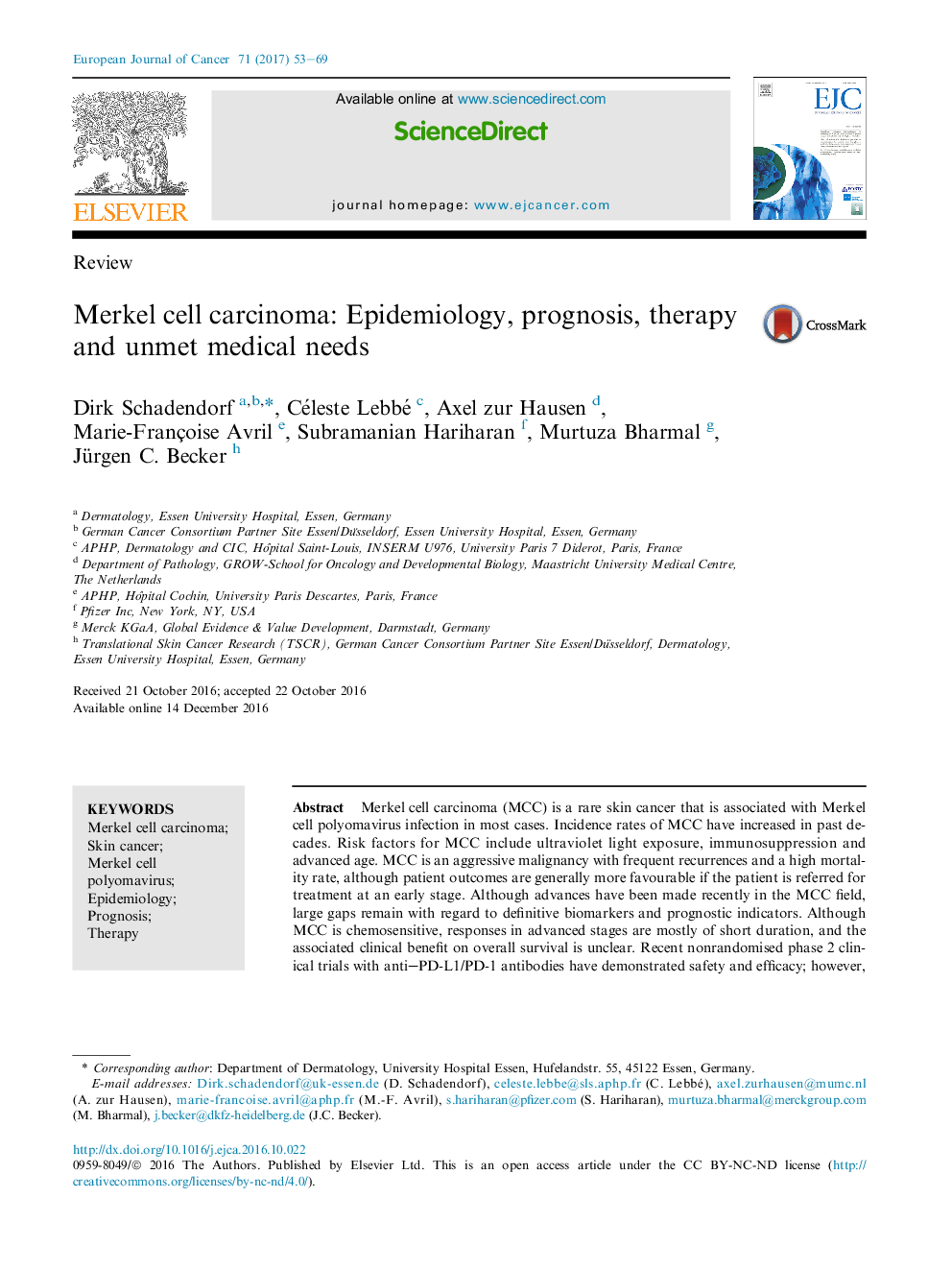| کد مقاله | کد نشریه | سال انتشار | مقاله انگلیسی | نسخه تمام متن |
|---|---|---|---|---|
| 5526799 | 1547062 | 2017 | 17 صفحه PDF | دانلود رایگان |
- Merkel cell carcinoma (MCC) is a rare, aggressive skin cancer with a poor prognosis.
- MCC is associated with Merkel cell polyomavirus in more than 80% of cases.
- Ultraviolet radiation exposure, immunosuppression and advanced age are additional risk factors.
- MCC is a chemosensitive disease, but responses are generally short-lived.
- Although there are no approved therapies for metastatic MCC, recent immunotherapy data are encouraging.
Merkel cell carcinoma (MCC) is a rare skin cancer that is associated with Merkel cell polyomavirus infection in most cases. Incidence rates of MCC have increased in past decades. Risk factors for MCC include ultraviolet light exposure, immunosuppression and advanced age. MCC is an aggressive malignancy with frequent recurrences and a high mortality rate, although patient outcomes are generally more favourable if the patient is referred for treatment at an early stage. Although advances have been made recently in the MCC field, large gaps remain with regard to definitive biomarkers and prognostic indicators. Although MCC is chemosensitive, responses in advanced stages are mostly of short duration, and the associated clinical benefit on overall survival is unclear. Recent nonrandomised phase 2 clinical trials with anti-PD-L1/PD-1 antibodies have demonstrated safety and efficacy; however, there are still no approved treatments for patients with metastatic MCC. Patients with advanced disease are encouraged to participate in clinical trials for treatment, indicating the largely unmet need for durable, safe treatment within this population.
Journal: European Journal of Cancer - Volume 71, January 2017, Pages 53-69
